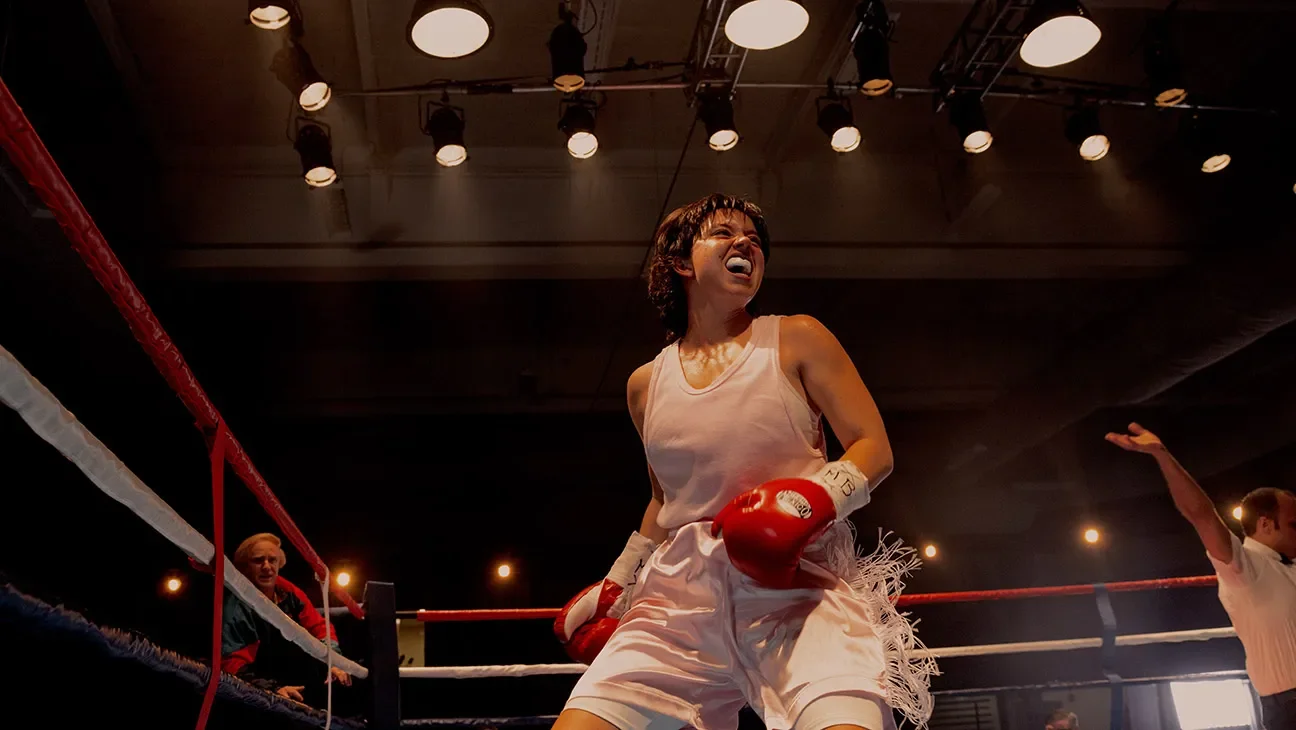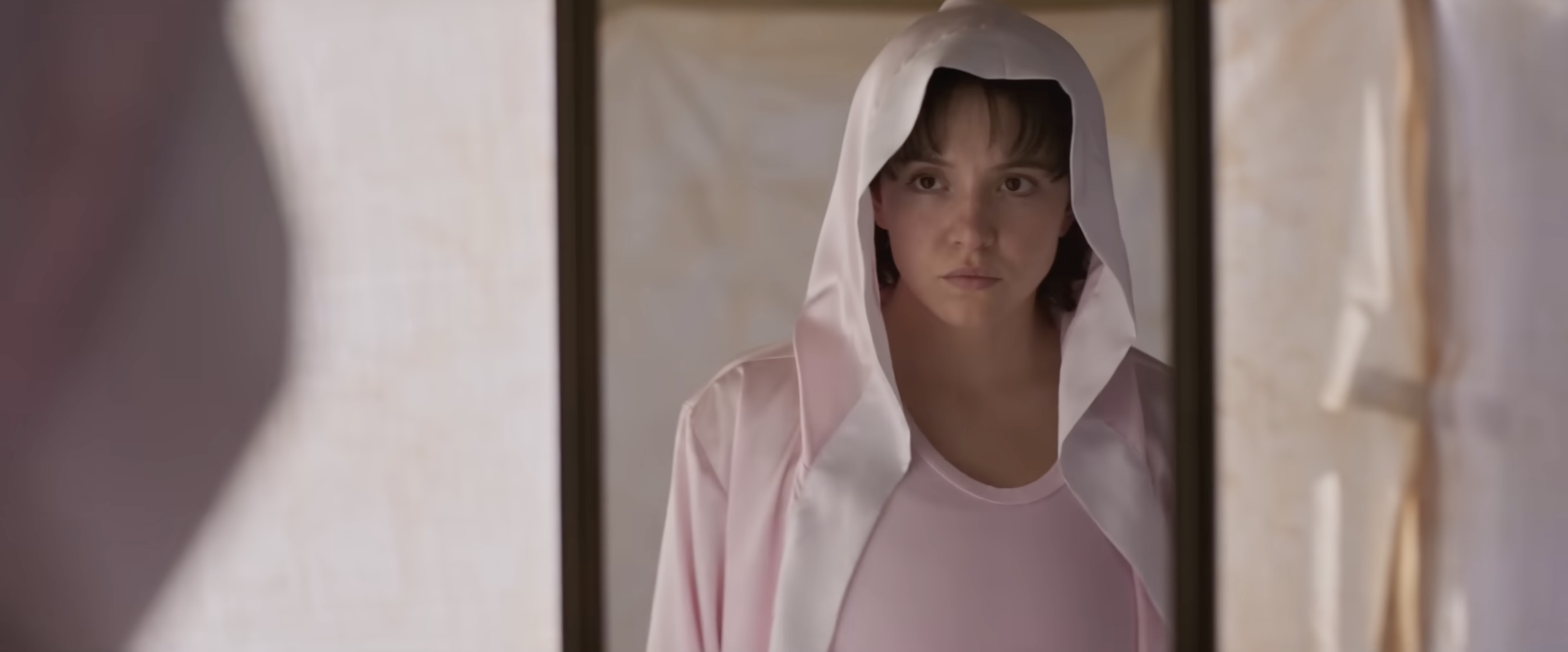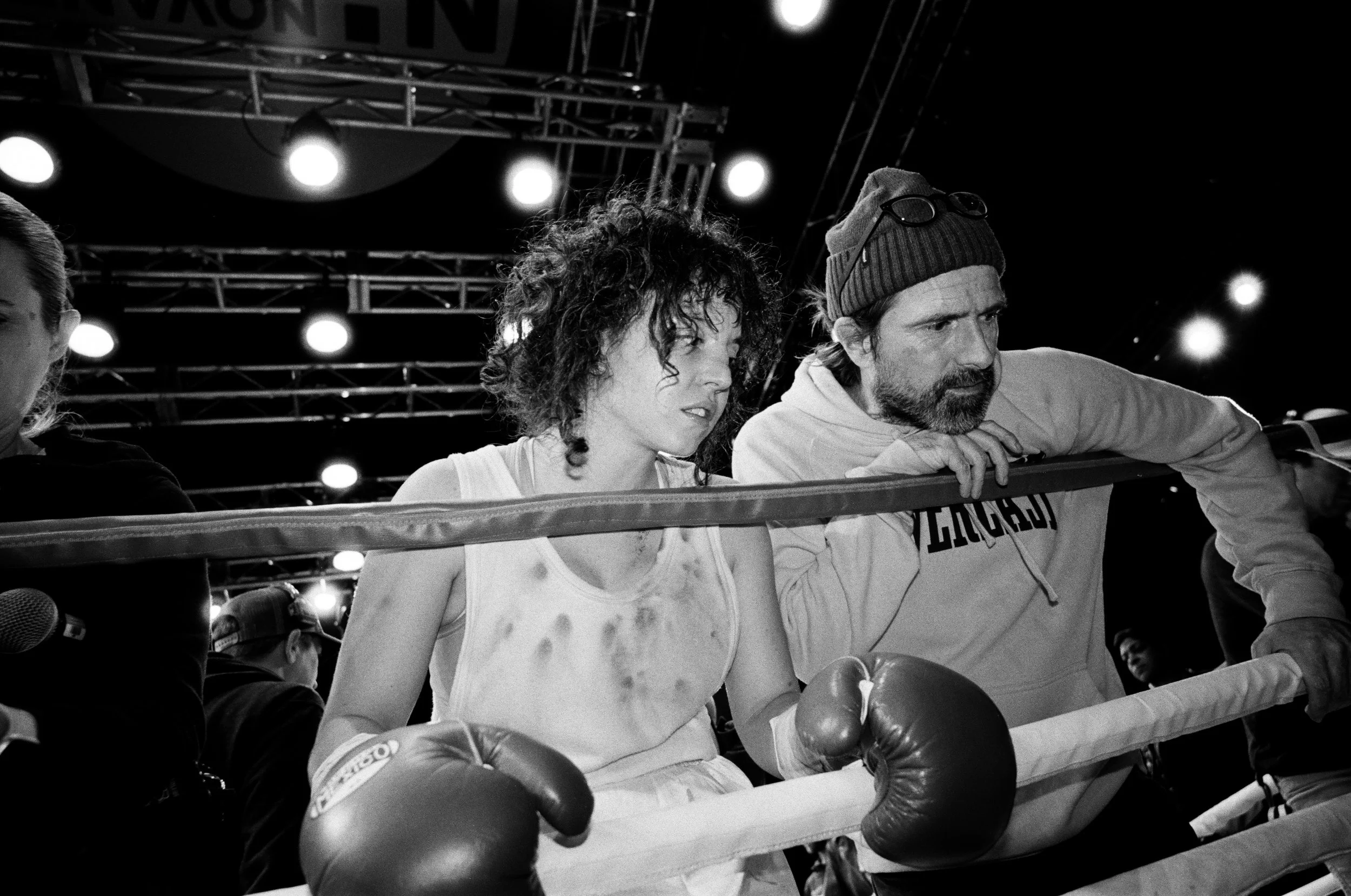‘Christy’ Review: Sydney Sweeney Lands a Knockout in a Gritty, Heartfelt Boxing Drama
COURTESY OF TIFF / Black Bear Pictures
Sydney Sweeney delivers a fierce, emotionally resonant performance as boxing legend Christy Martin in a powerful drama that hits hard where it counts.
There’s no question Sydney Sweeney trained hard for Christy. From the snap of her right hook to the quiet exhaustion behind her eyes, her embodiment of boxing legend Christy Martin is total and transformative. It’s the kind of performance that announces, once and for all, that Sweeney is more than a rising star — she’s a serious actor with something to prove. And she does, in a film that’s both powerful and frustratingly cautious.
Directed by David Michôd and co-written with Mirrah Foulkes, Christy is a bruised and beating heart of a biopic. It premiered at the Toronto International Film Festival as a Special Presentation, arriving with the weight of expectation and the shadow of sports-movie formula. What saves it — and sometimes, what saves it from itself — is Sweeney’s precision and empathy. She makes every punch feel personal, every silence meaningful.
Courtesy of Black Bear Pictures
The film opens in the small-town world of southern West Virginia, where Christy Martin is introduced not as a fighter but as a girl desperate to escape. A high school basketball player turned local sensation, she enters the ring almost by accident — a dare, a thrill, a test. The first hit lands, and so does her life’s purpose. It’s here that Christy feels most conventional: the underdog arc, the gritty montage, the discovery of natural talent. But Michôd finds glimmers of poetry amid the punches. There’s something in the way he frames Sweeney’s face — determination without glamour, pain without pity — that tells us this isn’t just a story about boxing. It’s about the performance of self.
Her manager-turned-promoter Larry (Bill Kelly) rebrands her as “The Coal Miner’s Daughter,” a marketing gimmick designed to sell tickets and soften her toughness. Overnight, Christy becomes both an icon and a product. The film leans into this paradox — that she can only be accepted if she’s both feminine enough to be palatable and brutal enough to be entertaining. The boxing sequences are shot with visceral energy, all sweat and ritual and sound, but what lingers isn’t the choreography; it’s the cost.
Courtesy of Black Bear Pictures
Enter Ben Foster’s Jim Martin, the trainer who becomes Christy’s husband and, eventually, her tormentor. Foster is chillingly good — a performance of quiet rot. He plays Jim not as a caricature of male rage but as something more insidious: a man who believes he owns her success. In the film’s middle section, their relationship becomes the central fight, and Michôd’s direction sharpens into something haunting.
At first, Jim seems like every driven coach in every sports movie — exacting, obsessive, relentless. But soon, he’s rewriting her identity, policing her femininity, turning her into a brand. “Smile more,” he tells her before a press photo. “Don’t forget to thank me.” He grows her hair, paints her nails, demands pink robes and lingerie shoots. It’s a masterclass in coercion disguised as love, and the film nails the suffocating duality of that dynamic.
Merritt Wever, as Christy’s mother Joyce, delivers one of the film’s most chilling scenes — a soft-spoken act of betrayal. When Christy confides that her husband is violent and controlling, Joyce dismisses her with a simple line: “Oh Christy, you sound crazy.” The moment lands like a gut punch. Wever plays it without malice — just a mother raised to preserve appearances — which makes it all the more devastating.
The film’s treatment of Christy’s queerness is perhaps its most delicate thread. Early on, we glimpse her first love, a high school girlfriend whose memory lingers like an unfinished sentence. The movie gestures toward the pain of that erasure — of having to perform straightness to survive — but it doesn’t linger long enough. There’s a more radical version of Christy that sits just beneath this one, a film willing to interrogate the cost of that suppression. Still, even when the script pulls away, Sweeney doesn’t. Her gaze carries the memory of a life deferred.
Courtesy of Black Bear Pictures
In its best moments, Christy finds power in stillness. There’s a scene midway through the film when Christy, alone in a locker room, stares at her reflection, her face swollen, her lip split. The sound drops out. The mirror fogs with breath. The camera holds. For a few long seconds, it’s as if she’s realizing, in real time, that the violence she endures in the ring isn’t so different from the violence she’s learning to endure outside of it. It’s quiet, precise filmmaking — the kind that trusts its actor to say everything without a word.
As the story darkens, the boxing becomes metaphor. The punches in the ring mirror the abuse at home. The cuts get deeper, the bruises harder to hide. Michôd’s framing grows tighter, his lighting colder. The world closes in. The violence becomes cyclical — a choreography of pain — and through it, Sweeney’s transformation becomes undeniable.
Courtesy of Black Bear Pictures
The final act, when Christy finally confronts Jim and escapes their home, is staged with harrowing realism. It’s not stylized. It’s not heroic. It’s desperate. Blood on the walls. Fear in the breath. When she emerges into daylight, half-dead but alive, Sweeney doesn’t play it for triumph. She plays it for truth. It’s the most powerful work of her career — a scene that strips away everything performative about the genre and leaves only survival.
That word — survival — is the key to Christy. For all its narrative restraint, the film ultimately becomes a story about endurance: the cost of fame, the negotiation of identity, and the violence of being a woman in a world that commodifies pain. Sweeney’s performance bridges those ideas. She gives Christy Martin the dignity of honesty. Her body may be bruised, but her spirit refuses to break.
POPULAR ON THE CINEMA GROUP
Supporting performances elevate the material. Katy O’Brian’s Lisa Holewyne adds warmth and moral clarity, a reminder that solidarity can exist even in isolation. Chad Coleman, as Don King, steals his brief scenes with magnetic charm and a sly critique of exploitation in sports. And Bryan Hibbard’s Big Jeff and Jess Gabor’s Rosie provide the emotional ballast the film occasionally lacks.
Antony Partos’ score deserves special mention — a haunting blend of gospel, synth, and silence that gives the film its pulse. The cinematography, often shot in deep shadows and muted colors, evokes both the grit of The Fighter and the melancholy of Foxcatcher. At times, Michôd over-composes his shots, favoring aesthetic polish over emotional immediacy. But when he lets the camera breathe, the film soars.
Courtesy of Black Bear Pictures
If there’s a flaw, it’s that Christy sometimes plays it too safe for a story that demands ferocity. It flirts with greatness but pulls its punches, particularly when it comes to exploring Christy’s sexuality and the systemic misogyny of the sport. You sense Michôd’s hesitation — a filmmaker torn between wanting to protect his subject and wanting to confront the truth. But even when the film falters, Sweeney doesn’t.
By the time the credits roll, Christy feels less like a sports movie and more like an act of reclamation. It’s a portrait of a woman who fought for recognition, for love, for her own life — and won, but at an unimaginable cost.
Rating: ★★★★½
That's A Wrap
|
Christy
|
That's A Wrap | Christy |
“Sydney Sweeney transforms completely for the role of Christy Martin, delivering a raw, physical, and deeply human performance that anchors the film. While Christy sometimes leans on biopic tropes, Sweeney’s emotional depth and unflinching realism elevate it into something vital — a story not just of survival, but of self-definition.”
CREDITS
Screened: Saturday, September 7 | TIFF Special Presentation
Cast: Sydney Sweeney, Ben Foster, Merritt Wever, Katy O’Brian, Ethan Embry, Jess Gabor, Chad Coleman, Bryan Hibbard, Tony Cavalero, Gilbert Cruz, Bill Kelly
Distributor: Black Bear Pictures
Creators: David Michôd (Director/Co-Writer), Mirrah Foulkes (Co-Writer)
Release Date: November 7 (US Theatrical)
Rating: R













![Sundance 2026 Recap [Part i]
Another Sundance in the books. Last one in Park City— premieres, portraits, and the people who made it.
More to come!
📸: @jonathanpmoustakas on @sonyalpha
#sundancefilmfestival #sundance2026 #thecinemagroup](https://images.squarespace-cdn.com/content/v1/65c1a54efb10480185732c60/1770112011067-GAUJ8WUARIG299C1YW9J/image-asset.jpeg)














